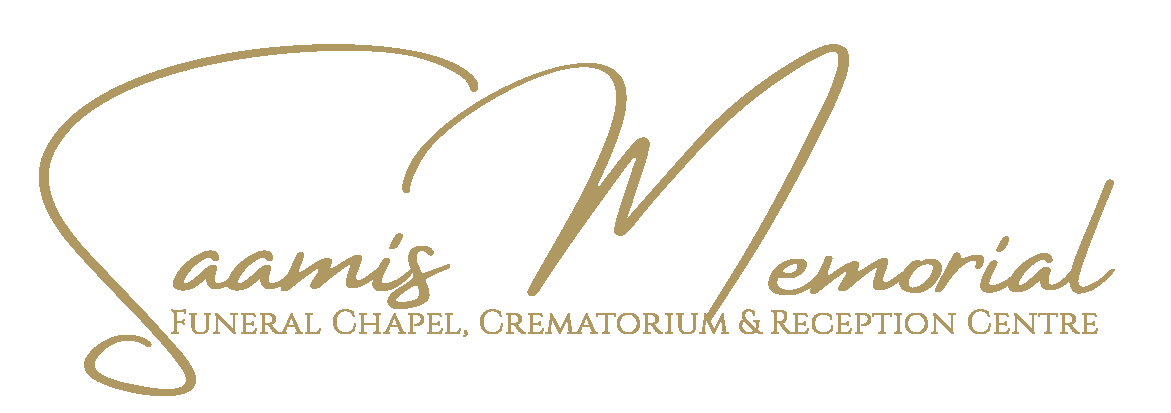Funeral Pre-Planning Information
Why Plan A Funeral Service Article by Roger Glenn Sept
The death of her Majesty Queen Elizabeth II should clearly demonstrate the need of tradition and ritual of a funeral service. Witnessing the throngs of people lining the motorcade as Queen Elizabeth II moves from one location to another, the interaction between the Royals and citizens, the need for visitation, the signing of Memorial Books even in places like Medicine Hat all demonstrate the importance of custom. Queen Elizabeth, herself, admitted that they had made a grievous error in judgment by being totally reclusive for ten days when Princess Diana was so tragically taken. She realized the world was grieving and needed to grieve with them, and that they too needed to grieve with the world. The Royals have clearly learned from this. They are out meeting with the people, walking in the motorcade, accompanying their mother from one location to another. Not only do the British need to see this, but so do the Commonwealth Countries, if not the world. We all need to take a lesson from this and realize a funeral is not for the person who has died, but for the people left grieving the loss of a very dear loved one or friend. The funeral allows people to grieve together, comfort each other, and remember why the person who died is so important to them.
Some of you will guffaw and say this is entirely different—the Queen was head of state and most of us do not remember any other monarch, so it is expected that they do this. However, don’t forget the Royals are people, they eat, breathe the same air, have emotions, are devoted to family, etc. It does not matter who passes away, they are a king or queen in some people’s lives. I am not saying one has to have all the fanfare that we are seeing on television, but one needs to realize that acknowledgment and the need to grieve is very important to mental health and it also teaches our children that life is indeed meaningful and should not be merely tossed to the side. Someone once said, “The rise and fall of civilizations hinge on how well we treat the dead.” By that, the author means that we are to recognize the importance of all life and the contributions the deceased has made to family, community, country, and even the world. It teaches respect!
Alan D. Wolfelt, Ph.D., a world-renowned grief/loss facilitator has written a paper, “Why is the Funeral Ritual Important?” written December 16, 2016. He states, “Rituals are symbolic activities that help us, together with our families and friends, express our deepest thoughts and feelings about life’s most important events” He goes on to say, “The funeral ritual, too, is a public, traditional and symbolic means of expressing our beliefs, thoughts and feelings about the death of someone loved. Rich in history and rife with symbolism, the funeral ceremony helps us acknowledge the reality of the death, gives testimony to the life of the deceased, encourages the expression of grief in a way consistent with the culture’s values, provides support to mourners, allows for the embracing of faith and beliefs about life and death, and offers continuity and hope for the living.” He goes on and states, “Unfortunately, our mourning-avoiding culture has to a large extent forgotten these crucial purposes of the meaningful funeral. As a death educator and grief counselor, I am deeply concerned that individuals, families and ultimately society as a whole will suffer if we do not reinvest ourselves in the funeral ritual.” His article further explores how the authentic funeral helps address the six reconciliation needs of mourning. To read this article in its entirety click on this link https://www.centerforloss.com/2016/12/funeral-ritual-important
Some of you will say, yes, but that is “well fine and dandy” but this article was written prior to the Pandemic. “We weren’t able to have ‘normal’ funerals. Psychologist Christy Denckla states “funeral and related rituals are ‘fundamental to how we mourn, to how we grieve, to how we reinforce social ties.’” December 14, 2020, write in the middle and worst of the Pandemic she writes concerning its effects on grieving and offers some suggestions to people who were left grieving alone during that time. To see her short video or read what she has to say please click on this link https://www.npr.org/sections/coronavirus-live-updates/2020/12/14...
Some of you will guffaw and say this is entirely different—the Queen was head of state and most of us do not remember any other monarch, so it is expected that they do this. However, don’t forget the Royals are people, they eat, breathe the same air, have emotions, are devoted to family, etc. It does not matter who passes away, they are a king or queen in some people’s lives. I am not saying one has to have all the fanfare that we are seeing on television, but one needs to realize that acknowledgment and the need to grieve is very important to mental health and it also teaches our children that life is indeed meaningful and should not be merely tossed to the side. Someone once said, “The rise and fall of civilizations hinge on how well we treat the dead.” By that, the author means that we are to recognize the importance of all life and the contributions the deceased has made to family, community, country, and even the world. It teaches respect!
Alan D. Wolfelt, Ph.D., a world-renowned grief/loss facilitator has written a paper, “Why is the Funeral Ritual Important?” written December 16, 2016. He states, “Rituals are symbolic activities that help us, together with our families and friends, express our deepest thoughts and feelings about life’s most important events” He goes on to say, “The funeral ritual, too, is a public, traditional and symbolic means of expressing our beliefs, thoughts and feelings about the death of someone loved. Rich in history and rife with symbolism, the funeral ceremony helps us acknowledge the reality of the death, gives testimony to the life of the deceased, encourages the expression of grief in a way consistent with the culture’s values, provides support to mourners, allows for the embracing of faith and beliefs about life and death, and offers continuity and hope for the living.” He goes on and states, “Unfortunately, our mourning-avoiding culture has to a large extent forgotten these crucial purposes of the meaningful funeral. As a death educator and grief counselor, I am deeply concerned that individuals, families and ultimately society as a whole will suffer if we do not reinvest ourselves in the funeral ritual.” His article further explores how the authentic funeral helps address the six reconciliation needs of mourning. To read this article in its entirety click on this link https://www.centerforloss.com/2016/12/funeral-ritual-important
Some of you will say, yes, but that is “well fine and dandy” but this article was written prior to the Pandemic. “We weren’t able to have ‘normal’ funerals. Psychologist Christy Denckla states “funeral and related rituals are ‘fundamental to how we mourn, to how we grieve, to how we reinforce social ties.’” December 14, 2020, write in the middle and worst of the Pandemic she writes concerning its effects on grieving and offers some suggestions to people who were left grieving alone during that time. To see her short video or read what she has to say please click on this link https://www.npr.org/sections/coronavirus-live-updates/2020/12/14...
Funeral Pre-Planning
Funeral pre-planning is something that everyone should take seriously but few seldom do. Many people will often acknowledge that they know it’s important As funeral directors, we often get asked when the best time to plan a funeral is? Truthfully, the answer is any time before you have to plan a funeral. You wouldn’t wait to plan a wedding or a baby shower until a few days before, so why wait to plan a funeral? Preplanning a funeral not only allows you to record your wishes, it gives you and your family the peace of mind to know that everything is taken care of.
There are two types of funeral plans, preneed and at-need (sometimes referred to as immediate need). At-need funeral plans are made by the surviving family members after a death has occurred. It can be a difficult experience for the survivors because emotions are high, time is short, and their grief needs to be managed. Not only that, but the imminent financial concerns can add to the stress of everything.
Preneed funeral plans are much less stressful and more advantageous. Rather than rushing to complete arrangements, you can think about what you want your service to include and talk about the options with your family. Making funeral arrangements in advance also offers several benefits which we’ve outlined below.
Funeral Pre-Planning Benefits
If someone were to ask you, “what’s the benefit of making funeral arrangements in advance?”, the simple answer is that “it helps prevents mistakes.” Therefore, many of us make plans in many aspects of our life. We plan for our wedding, our children’s education, family vacations, and other significant expected life events. Also, we plan for unexpected life events by purchasing home, auto, and medical insurance.
So why don’t more people plan their funeral? Obviously planning your own funeral is morbid and does not fill you with positive emotions, but it remains very important and beneficial.
Make Sure Your Wishes Are Followed
Making funeral arrangements in advance ensures that your family follows how you want to be honored when you die. First, you can explicitly state that you would like to be cremated vs buried. Then you can specify if you would like a ceremony to honor your life and what that ceremony would look like and include. You can get very detailed with your instructions such as detailing where you would like your ashes scattered. Preplanning your funeral ultimately gives you control and power to make important decisions.
Remove the Stress From Your Family
Trying to plan a funeral immediately after a loved one’s passing is very difficult. Family members are overcome with grief and not necessarily thinking clearly. By preplanning a funeral, you can relieve your family of the burden of making these arrangements. Instead, when death occurs, your loved ones can focus their energy on comforting one another and mentally preparing for the service.
It’s also common for family members to disagree on a loved one’s final arrangements. Clearly communicating your wishes in your plans can quickly resolve disputes. Preplanning a funeral is an easy way to avoid disputes and remove the stress from your family.
More Payment Methods
Pre-need funeral plans offer families more convenient payment options than those who are in immediate need. Those who choose to preplan often have three choices when it comes to paying for the service.
- You can pay for your funeral service in advance, which is often referred to as a prepaid funeral. Choosing this option will place your money into a trust where it can earn interest over time. This means when you pass away, your family could get a refund on the costs or have extra money to add something meaningful to the service.
- You can take out an insurance policy. If you qualify, when you do pass away, the policy will be used to cover some or all of the funeral expenses or estate taxes.
- You can pay over time. Most families are paying for the funeral costs at a lump sum after the funeral has concluded. Instead you can make smaller, incremental payments over time to start eating at the cost. In this instance, you can add these payments into your monthly budget.
Lock into a price and Avoid Inflation
Inflation impacts every industry and funeral homes are not exempt. When you pre-plan a service and pay in advance, you can lock into a price on the day you sign the contract and potentially avoid the impact of inflation or rising costs.
Talk About it with Your Family
Funeral pre-planning allows you to talk it over with your family. As much as a funeral service is about celebrating your life, it can also be beneficial to get your family’s point of view. Planning a ceremony that allows your family to best cope with grief should be considered.
What’s Included When You Pre-Pay for Pre-Need Funeral Plans
So, you’re ready to start funeral pre-planning, but you have questions about what you receive when the arrangements are finished. Once the contract has been signed, the funeral director will provide you with a written statement that outlines the goods and services you have purchased (along with pricing for each). You will also receive a copy of the pre-need contract discussing the terms and conditions, this includes:
- A guarantee that if the goods and services you selected are not available at time of service, a substitute of equal or greater value will be provided at no cost.
- The geographical boundaries of the firm’s service area.
- Under what circumstances the contract can be transferred to another funeral home.
- State where the funds are held until the funeral service.
- Explain who is responsible for paying taxes on any income or interest generated by the preneed funds you invest.
- Discuss whether, the price of goods and services is guaranteed.
- The terms if you wish to cancel your preneed contract.
How to Pre-Plan a Funeral
Here's a break-down of the process:
- Set goals
- Review limitations
- Look at available options
- Weigh the pros and cons of each option
- Talk to others about the best options
- Arrive at a final decision
In the case of funeral pre-arrangement, another two important steps are involved:
- Write out your plan with as many details as possible.
- Send your plan to the funeral home and provide a copy to your executor.
Pre-Planning Checklist
If you are curious about how to pre-plan a funeral, we have created a funeral pre-planning checklist for you to easily follow.
Taking Care of Finances and Property
- Create a contact list of everyone who should be notified in a medical emergency or death including the name of your funeral home.
- Give your executor(s) a copy of your will and the contact list.
- Give your executor(s) a list of bank and investment accounts, creditors, mortgage or lien information, insurance policies, retirement plans, safe deposit boxes, real and personal properties of value, and all related telephone numbers.
- If you are receiving benefits from Canada Pension Plan, Old Age Security or the Veterans' Administration, your executor needs that information to suspend benefit payments.
- Select someone you trust to deal with your online accounts: email, online memberships, and social media. Include all relevant information and whether or not they should delete, close, or keep any of the accounts.
Taking Care of Funeral-Related Details
- Make note of all the details you want mentioned in your obituary. You could even take this one step further and write your own obituary.
- State, in writing, your preferences for burial or cremation.
- If burial is preferred, provide the details of the cemetery arrangements. If you have not purchased a burial plot, this is the time to do so.
- If you have chosen burial, what type of casket would you like? Should it be made of wood, metal, or composite materials?
- If you choose cremation, what do you want done with the ashes?
- Would you like a traditional funeral, memorial service, or celebration-of-life?
- If you'd like a celebration-of-life, what location would you suggest for this event?
- What special activities would you prefer at a celebration-of-life?
- What music or special readings would you prefer?
- What type and colours of flowers would you prefer?
- Would you like to select a charitable organization to receive donations in your name?

Taking Care of Your Pets
If you share your life with animal companions, you should think about who you would like to take care of your pets. Consult with the person to see if this is something they are interested in doing for you and then write down your intentions and include all contact information. This should be signed and witnessed, and then given to your executor.
Final Pre-Planning Tasks
In addition to your will, the contact list, and the list of all your online account login details and related documents should be provided to your executor.
Finally, you may want to consider paying ahead of time for your funeral choices. Speak to us about how your pre-payment monies will be handled.
Use Our Online Funeral Pre-Planning Tool
Our website features a step-by-step interactive online funeral pre-planning form that can be used to record your end-of-life plan. You'll be asked to create an account with a username and password so you can login at any time to complete or change the plan.
Pre-Arrange Online Today

